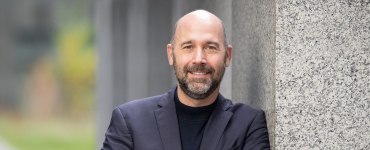On Wednesday, 28 Oct. 2020, the German government’s Digital Agenda Committee discussed data sovereignty in connection with the GAIA-X project. Andreas Weiss, eco Head of Digital Business Models, took part in the committee’s technical discussion as an invited expert. In advance, the eco Association published a detailed statement, which can be downloaded here (in German).
“GAIA-X has the potential to become the European standard for cloud computing and significantly expand our competitive advantage,” says Andreas Weiss. “An essential factor here is European regulation and the associated European evaluations in the area of data protection and security.”
Weiss also emphasizes that the project is less about reinventing everything and more about bringing together tried-and-tested and existing approaches. “It is essential to connect data rooms with the forward-looking, often small companies and to create an innovation room that is agile, secure and in line with European values and EU legislation,” Weiss continues. “This approach does not exclude any actor per se, but sets clear requirements for technical and organisational involvement.”
More than 300 companies and organisations have actively participated in the design of GAIA-X in a very short time. Around 75 percent of these are in the private sector, half of which are small and medium-sized enterprises (SMEs).
“With a view to the digital single market, GAIA-X offers great opportunities, especially for SMEs,” Weiss continued. “In particular, the operators of digital infrastructures and the market conditions they find in Germany should therefore be more closely involved by politicians in digital policy strategies.”
The recording of the public meeting of the Digital Agenda Committee can be accessed on www.bundestag.de (in German).
About the GAIA-X project
With GAIA-X, the German federal government, industry and science are striving to create an efficient, competitive, secure and trustworthy data infrastructure for Europe. Since the project was presented at the Digital Summit in October 2019, several hundred experts have been working on the comprehensive European data ecosystem. Thus, an initial technical architecture has been developed based on concrete application examples from various branches of industry and the public sector, on which data can be made widely accessible and exchanged in a trustworthy manner.
GAIA-X should be functional as early as 2021 and provide European companies with an alternative to the global hyperscalers for storage, software and computing services via the Internet. At its core, the focus is on data sovereignty, data availability in Europe and the promotion of innovation for the European economy.




